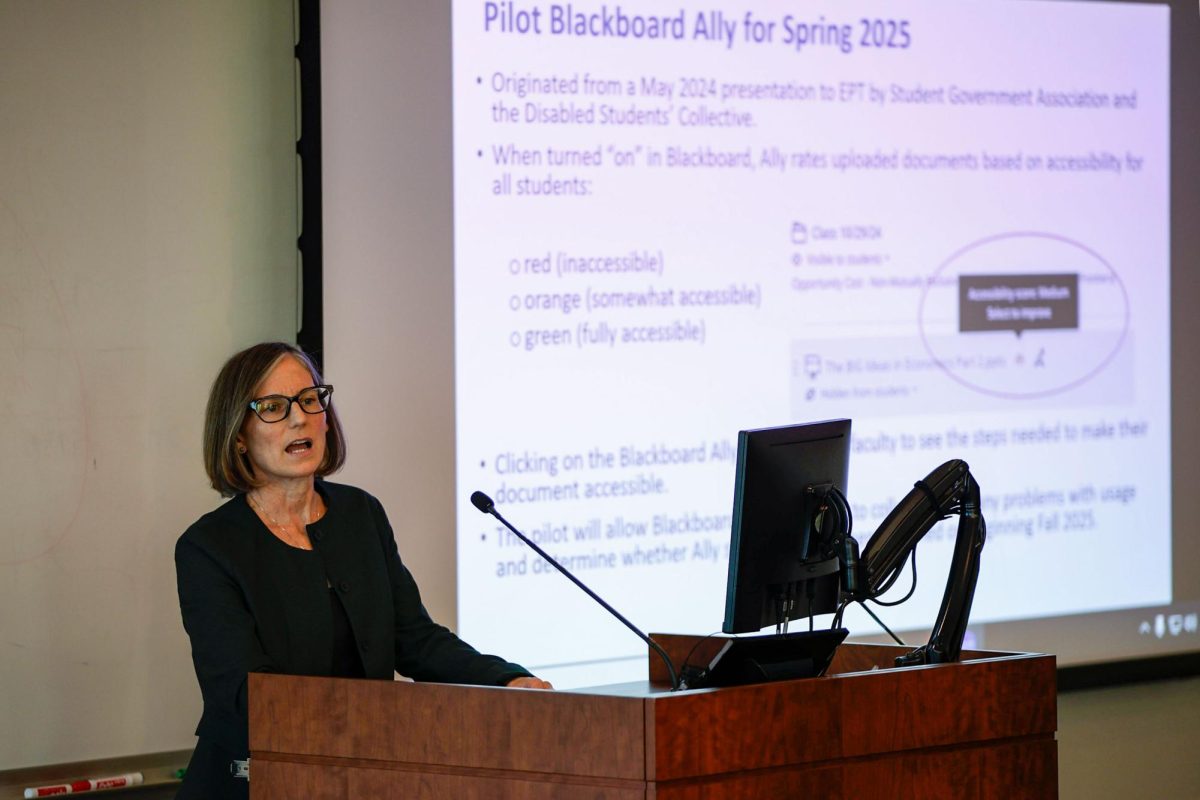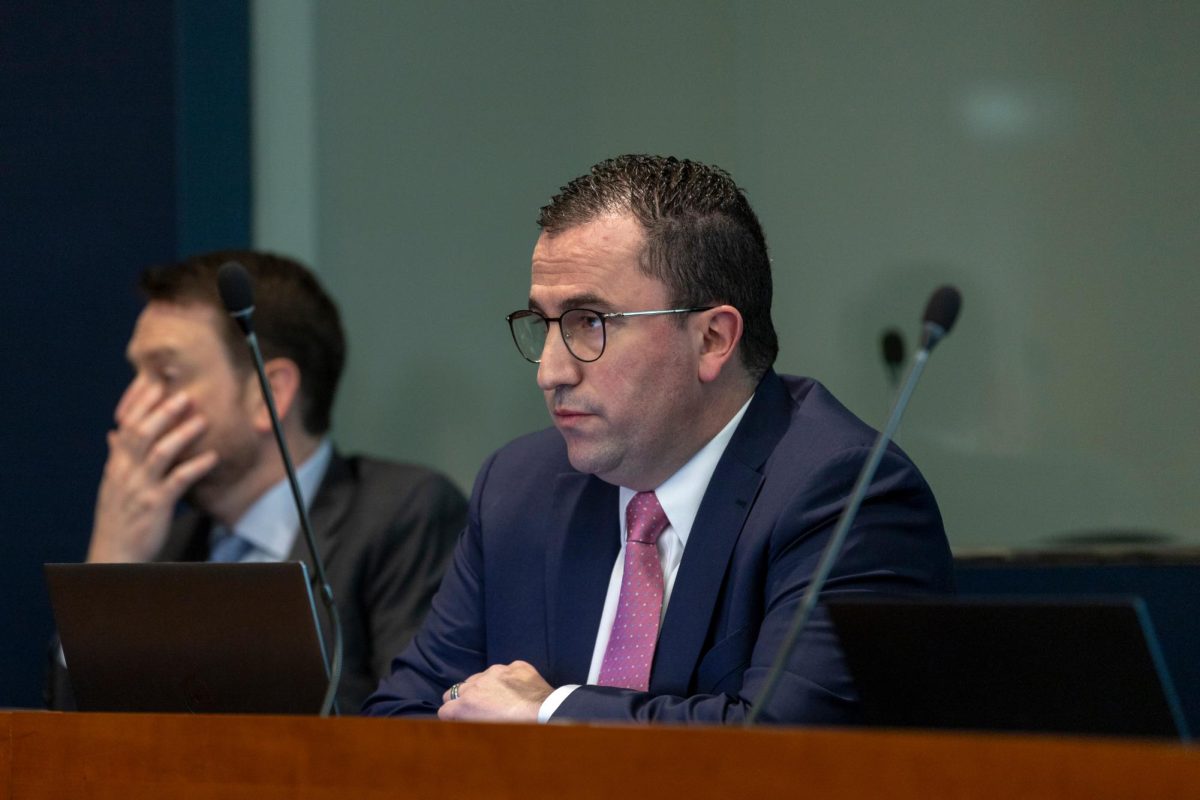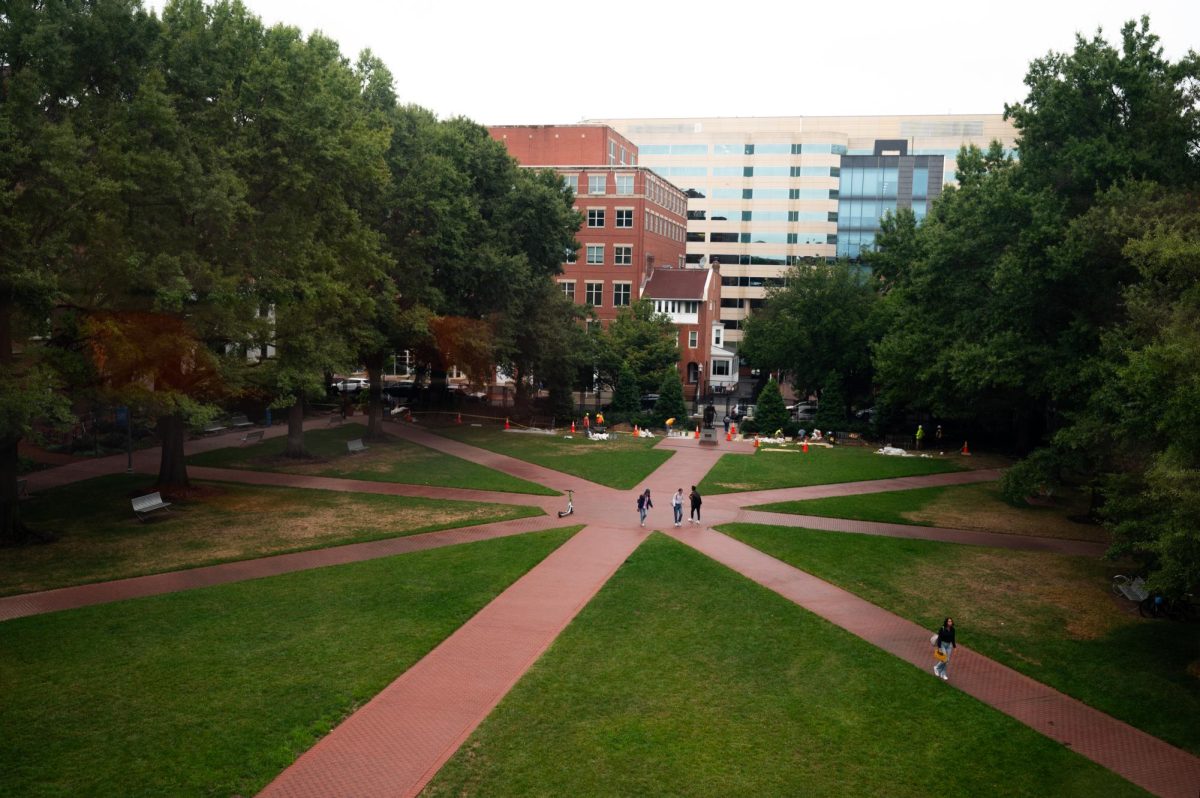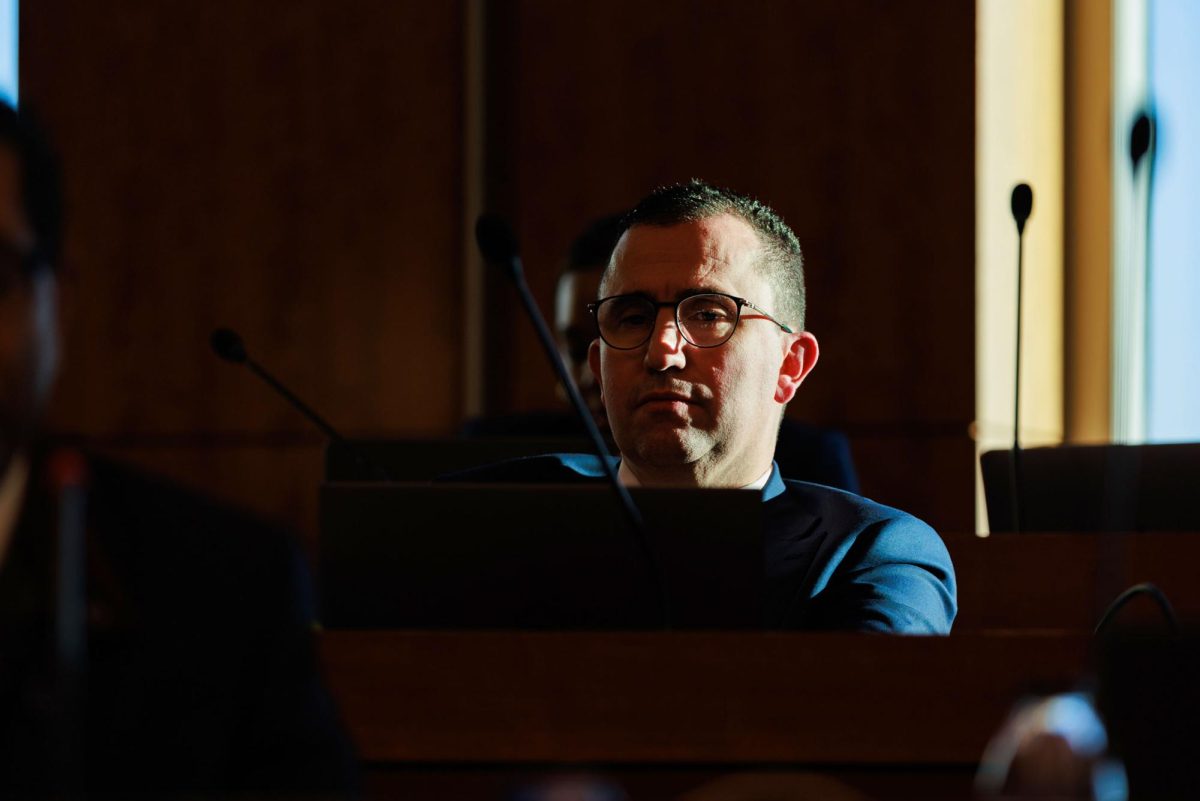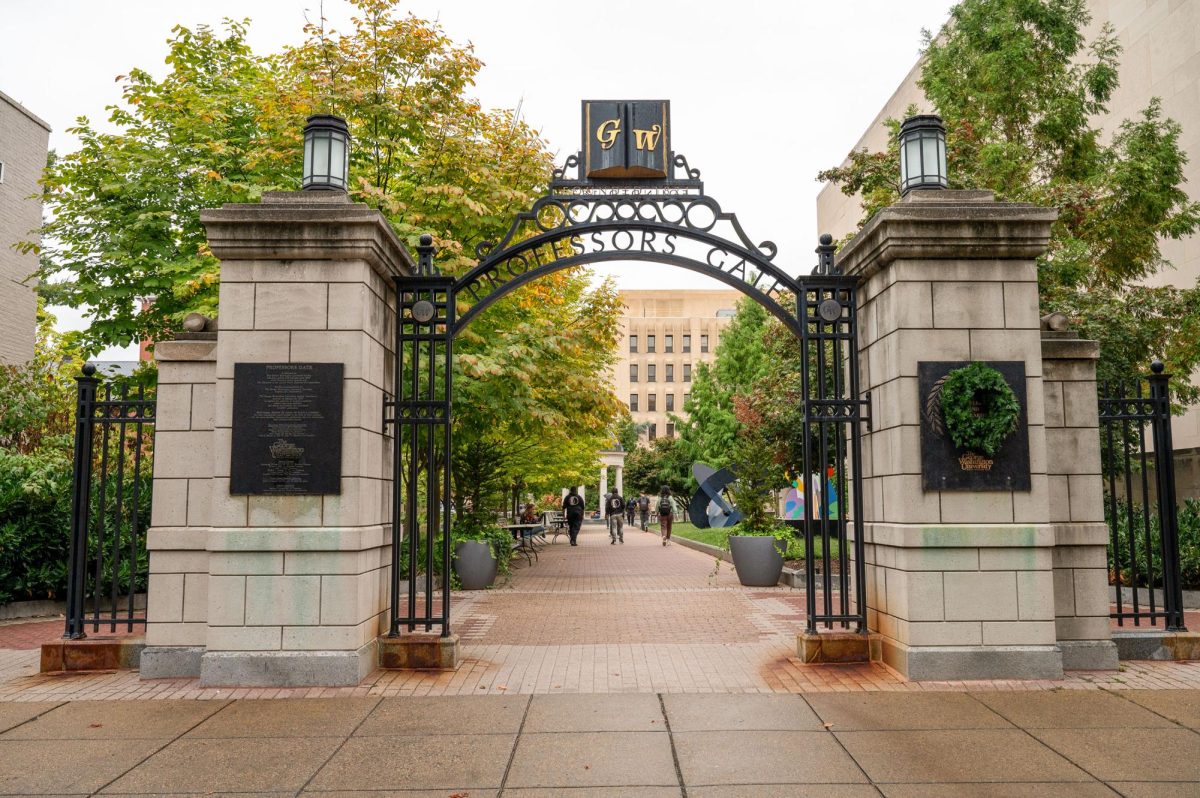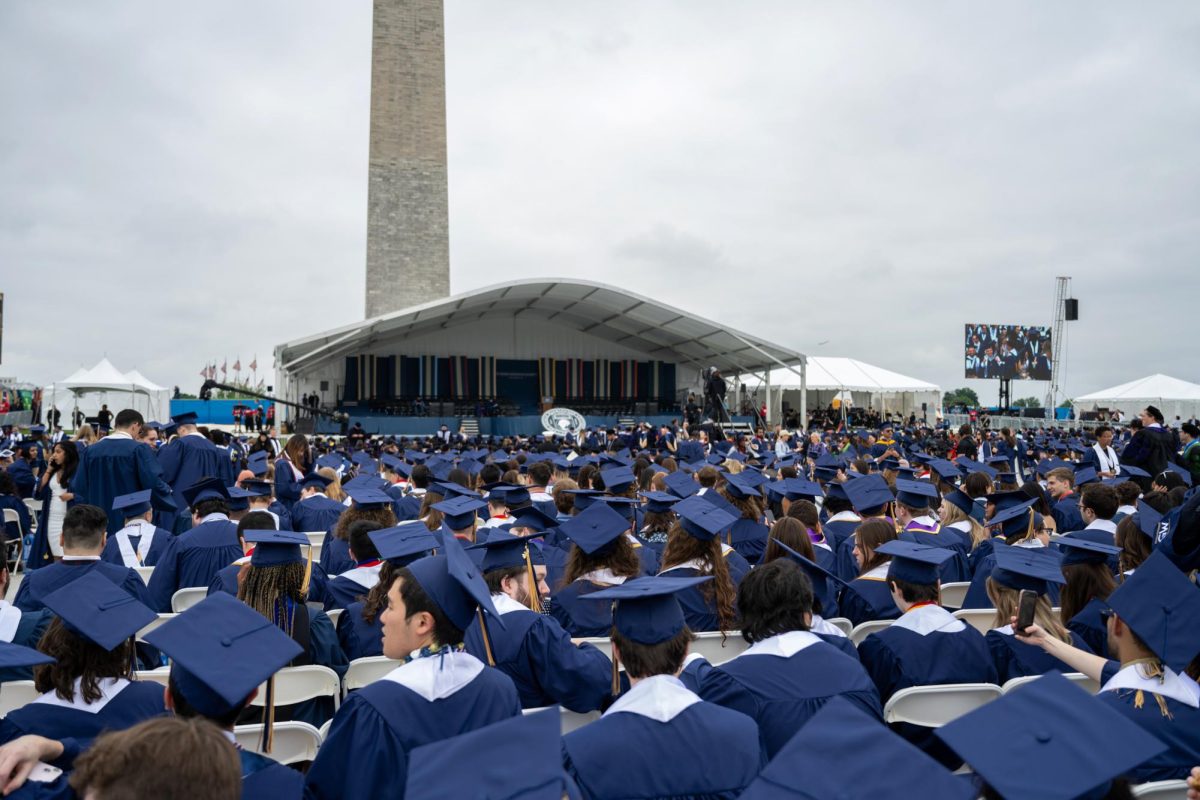Officials say they resolved payment delays for graduate students working as teaching and research assistants, which students working in the Columbian College of Arts and Sciences said lasted up to six weeks dating as far back as 2017.
Sarah Wagner, a professor of anthropology and faculty senator, said during a Faculty Senate meeting earlier this month that poor management and understaffing in GW’s “central financial administration” delayed the stipends and salary payments. University spokesperson Josh Grossman said payment processing issues have been resolved through “streamlined processes” and “staffing support,” but the fix comes after graduate assistants in at least three CCAS departments said they had to borrow from family members and take on debt due to delays.
“The reimbursement culture forces students to carry debt not for weeks, but for months,” Wagner said.
Grossman said multiple offices and departments within the University disburse stipends, including the Office of Graduate Assistantships and Fellowships, individual academic departments and schools.
“Our graduate students contribute valuable teaching and research to our University community and are critical to advancing our academic mission,” he said in an email.
Grossman declined to say when stipend delays began, how many times stipends have been delayed or how many students have been affected. He also declined to say whether any departments or programs experienced more delays than others.
The University provides graduate student assistants – a position comprised of teaching and research assistants – with two regular payments, a stipend payment and a salary payment, according to the Office of Graduate Assistantships and Fellowships. The website states that all graduate assistants receive a salary as stated in their award letter that electronically deposits into students’ bank accounts by the last day of each month.
Graduate assistants receive monthly stipends “to cover living expenses,” and payments should be received on or by the first business day of each month, according to the website. Graduate student assistants at GW cannot hold multiple assistantships, and they cannot seek other jobs “unless together they total no more than 20 hours per week,” the website states.
Students said they had to deplete their savings, borrow from friends and relatives and move back in with their parents to weather GW’s payment delays when bills like rent payments were due. Three students who worked in CCAS said the delays lasted for as long as six weeks and during the summer months, with experiences dating back to 2017.
The Hatchet granted graduate student assistants anonymity and will not disclose the departments where they have worked due to concerns about potential retribution and to protect their financial privacy.
Emails to department heads and departmental directors of graduate studies show one teaching assistant’s stipends were delayed three separate times since the fall 2019 semester.
“With the stipends, there’s nothing,” she said. “There’s no policies or protocols about what to do in case of a delay or what sort of rights either party has in case of a delay.”
She said her annual stipend is about $17,000, and her annual salary is about $9,500. She said her one-time summer 2022 payment from an endowment was delayed by six weeks, forcing her to rely on her savings from the last two years to cover her living expenses.
“I’m losing out on money,” she said. “We’re just expected to wait.”
She said if a payment from one monthly cycle is delayed, it often won’t arrive until the first of the next month, leaving about 30 days of financial uncertainty. She said landlords are unwilling to grant extensions on rent payments when students were unable to pay due to the University’s delays.
She said there are “lapses” in communication between University offices that disburse funding, like endowments and external fellowships, and departments with graduate assistants who receive that funding, and the lack of a clear hierarchy causes delays that go unnoticed.
“We have no one to turn to,” she said. “We turn to our department administration, we get a response saying ‘Don’t worry, you’re not alone, we’re working on this.’”
She said the stipends are not enough for students to build up savings to withstand potential delays on top of paying bills.
“There’s a lot of mental, economic insecurity that you have to just constantly live with anyway,” she said.
Another student waited 15 days after her payday to receive her stipend in September 2019 and in August 2020, according to her emails with department heads and departmental directors of graduate studies. She said she paid rent late in October 2019 and took on credit card debt as a result of the delays.
“I fortunately have a nice landlord, but not everyone does,” she said.
She said the office manager and director of graduate studies in the department in which she worked offered her zero-interest loans to make up for the delays and were responsive to her requests for help, always replying within about a day. She said graduate students are paid “half of a living wage in D.C.,” making about $25,000 annually across both salary and stipend payments.
“For us to not be paid on time is pretty absurd anyway, but for us to be expected to live on this in the DMV area is also absurd,” she said.
GW delayed payment for another student five times since 2017, according to his emails with department heads and departmental directors of graduate studies. He said a payment covering his tuition for a summer language fellowship abroad and a stipend for his living expenses on the trip did not go through until after he already returned from the program at the end of the summer.
He said he had to ask the Institute of Middle East Studies to write a letter to the host university abroad explaining why he couldn’t pay for his tuition on time. He said he had to rely on savings to cover his living expenses for his two months abroad because of the delayed stipend.
“It feels like our financial needs are not as important as any other employees’,” he said. “The whole reason any of us agree to apply to and accept a PhD at GW is we know that it’s going to pay for us to do the work they want us to do.”
He said he had to coordinate between CCAS, the Elliott School of International Affairs, the Institute for Middle East Studies, his external fellowship institutions and partner universities abroad to ensure his funding was properly transferred from his fellowship program to GW to the abroad university.
He said he budgeted his money assuming payments would come on time, meaning he needed to ask his parents to borrow money while he was waiting for payments to go through.
“When it suddenly doesn’t come, you’re left holding the bag,” he said.
He said his savings went toward costs associated with the spring semester Student Health Insurance Plan and his taxes. He said he moved back in with his parents to save a month of rent money.
“It’s demeaning, and it’s frustrating, and you just feel kind of powerless about it,” he said.



